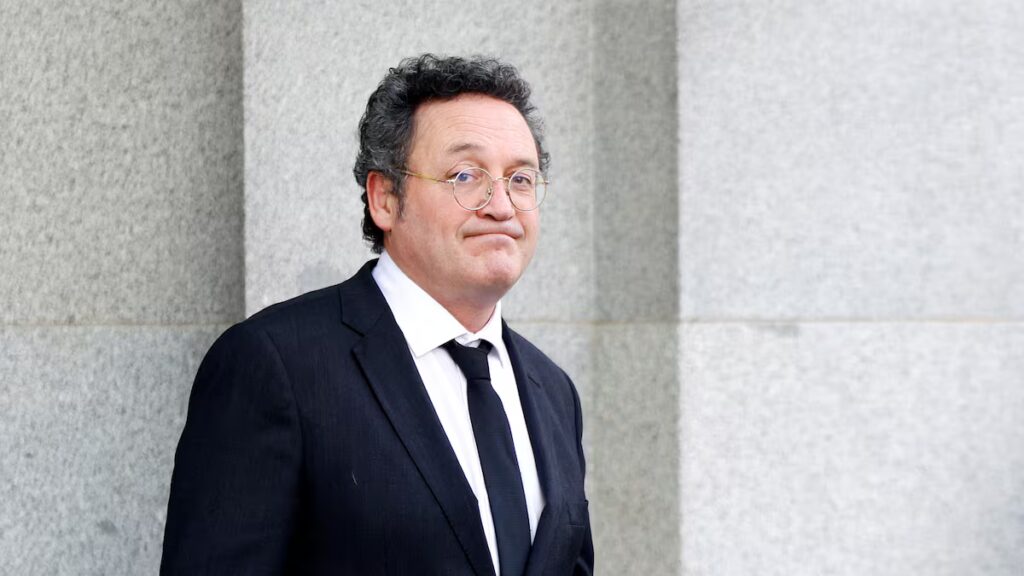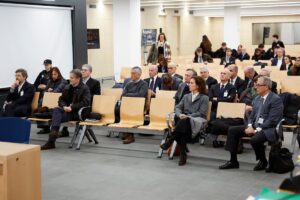
In a vertical power structure like that of Pedro Sánchez, probably the president who in recent Spanish democratic history has had the least checks and balances within his executive and above all his party, nothing moves without the leader approving it or, in most cases, deciding directly. And in the most delicate matters it is not enough to do it by telephone. You have to do it in person.
This is why in La Moncloa everything is ready for the Council of Ministers to appoint the new state attorney general this Tuesday – according to most sources it will be a woman, although there are no certainties – but until Sánchez arrives from Luanda (Angola) early in the morning and goes to La Moncloa to meet Félix Bolaños, the Minister of Justice, nothing is certain.
The decision could also be delayed, although everything indicates that it will be this Tuesday. To open up this possibility, the current attorney general, Álvaro García, resigned on Monday. If he had not done so, the Council of Ministers would not have been able to appoint a replacement, because the Supreme Court ruling disqualifying him has not yet been published and, therefore, he had the right to continue practicing until it is final.
Speculation is sky-high in government and the judiciary, where there are more than 3,000 prosecutors and many candidates, who may not even be in the running, given that they are only required to be a jurist of recognized prestige.
Bolaños has carried out dozens of consultations since Thursday to outline the name that only Sánchez will be able to define, in a high-voltage political decision. In the absence of that last word from the president, which can change everything, several government sources consulted underline that it will most likely be a woman, an important gesture for an executive that defines itself as a feminist, and certainly someone with a clear progressive profile and credibility in the running. In the political and legal world there has been speculation about several names of progressive women such as Teresa Peramato, chief prosecutor of the criminal section of the Supreme Court, specialist in gender violence and president of the Progressive Union of Prosecutors. But always with the caution that Sánchez decides and could pull off an unexpected coup, something very common in his mandate.
The chosen one will have to be powerful and credible in the race to be able to face a difficult moment and a political and legal response to a very clear challenge from the Supreme Court to the Government, having condemned for the first time in history an attorney general with a sentence not yet written but already much discussed. Sánchez himself said he respects but “regrets” the sentence because he believes García “is innocent” and this was confirmed by “several highly experienced journalists” during a trial in which the Government provided no evidence of the attorney general’s guilt. From Luanda, Sánchez thanked García for his work as a “public official”. “I wish him all the luck. He has all my respect and consideration,” the president said.
The weekend was very intense in Madrid, with continuous calls and meetings of the minister and Sánchez’s hard core, but also in Johannesburg, where the president was at the G20, which this year took place in South Africa, and also in Luanda, where he arrived on Sunday evening and stayed all day on Monday to participate in the EU-African Union summit, which this year is taking place in Angola.
In the moments of rest of the summits, or even during them, Sánchez was able to speak and send messages to his main collaborators to forge the decision. But the final touch will come in La Moncloa, when he arrives by helicopter from the Torrejón de Ardoz air base, where the Airbus lands with which both the president and the king usually make long trips.
Sánchez made a very important decision this Sunday. There were sectors of the government that were betting on a total war with the Supreme Court, and for this reason the president used very strong words as did his minister, former head of cabinet and person of utmost trust, Óscar López, who said that “the devastating message has been sent that, if you dare to touch Ayuso, forward“Or the same second vice president, Yolanda Díaz, leader of Sumar, who accused the judges who sentenced García of being involved in an operation to overthrow the government. Sánchez pondered his response for three days and on Sunday he chose not to fuel the war, to demonstrate his disagreement with the sentence and his confidence that it can be corrected by the Constitutional Court, but without adding insult to injury. This is why it is now very important which attorney general he will choose, because that is his truth answer politics.
“The best response is to govern and exercise our powers,” sources in the Executive leadership underlined over the weekend, also to dispel doubts, once again, about a possible electoral advance and take advantage of the moment of indignation over the sentence which brings together and mobilizes the left. Sánchez and his entourage insist that they will continue to govern until 2027, with the difficulties already known and without budgets, and this appointment of the replacement in the general prosecutor’s office can also be an important message of continuity: whoever accepts that position knows that it could be a short period, because there must be elections in the summer of 2027 and the government could change, but it would not make much sense to appoint someone powerful and bring forward the elections shortly after.
The new attorney general will be the fourth since Pedro Sánchez arrived in La Moncloa in June 2018. Before García Ortiz there were María José Segarra and Dolores Delgado, who also resigned, although in her case, due to health problems. In the meantime, the functions of attorney general will be assumed, as expected, by the deputy prosecutor of the Supreme Court, Ángeles Sánchez Conde, number two in the fiscal leadership, who is also another possible candidate for the position of attorney general, like Teresa Gisbert, prosecutor of the juvenile court. Another name speculated is that of Supreme Court Justice Ana Ferrer, but it would mean losing a key position for progressives in the Criminal Court. In fact, he has yet to write his dissenting opinion in the ruling against the attorney general. And if he were finally a man, Diego Villafañe himself, head of the technical secretariat of the Attorney General’s Office and García’s right-hand man, would be a candidate for continuity. The new prosecutor will have to undergo scrutiny by the General Council of the Judiciary and also by the Cortes, where he will have an appearance that is expected to be harsh due to the opposition’s rejection of any appointment by Sánchez.





